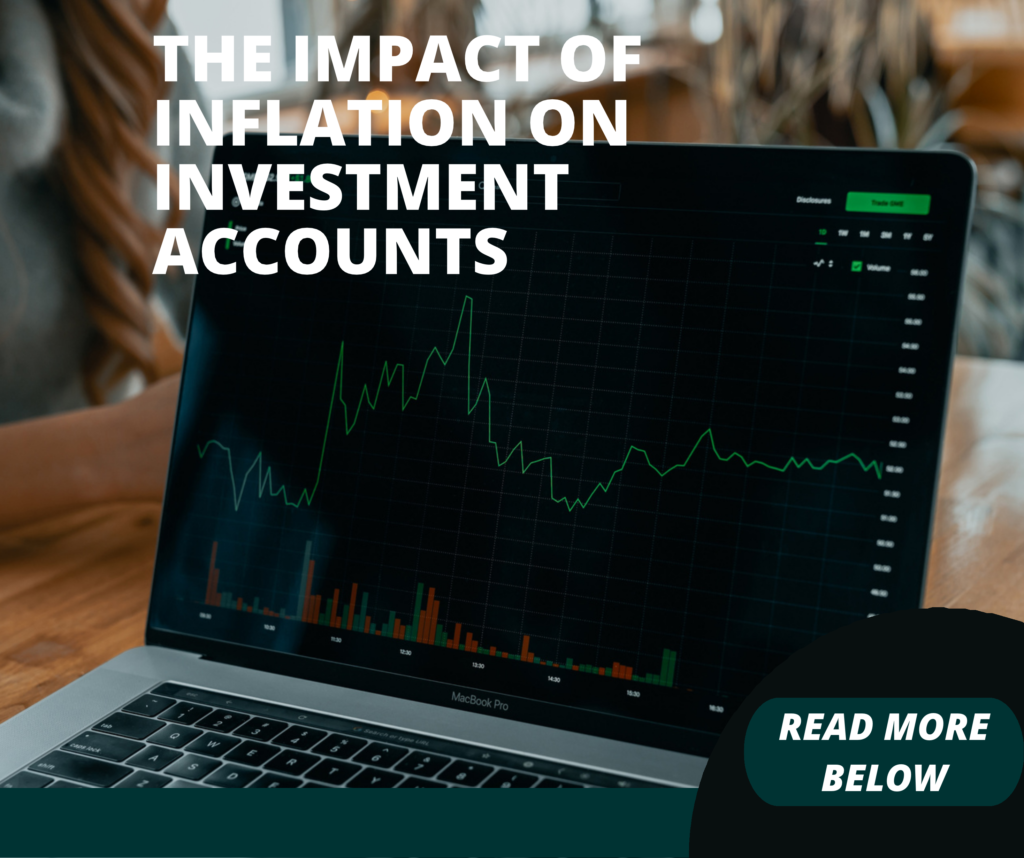As we age and prepare for retirement, financial stability becomes a top priority. One crucial aspect of retirement planning is understanding the impact of inflation on our investment accounts. Investing is a powerful tool to build wealth and secure one’s financial future. However, you should be mindful of the lurking threat of inflation. Inflation is the gradual increase in the general price level of goods and services, which can erode the purchasing power of our savings over time. Below, we will delve into the effects of inflation on investment accounts and explore strategies to protect your nest egg during your pre-retirement and retirement years.
Erosion of Purchasing Power
Inflation has a stealthy way of diminishing the value of money. As prices rise, the purchasing power of your savings gradually decreases. Pre-retirees and retirees are particularly vulnerable to this phenomenon, as their investment allocation may be more conservative due to the time horizon of taking distributions from investment accounts. The duration of inflation and longevity can impact the value of an individual’s retirement account. This erosion can significantly impact your lifestyle in retirement.
The Importance of Beating Inflation
Depending on your financial situation and investment allocation, it’s crucial to aim for investment returns that outpace inflation. While traditional savings accounts and conservative investments may provide safety, they often fail to keep pace with inflation’s relentless march. Hence, pre-retirees and retirees should consider a diversified investment approach to achieve higher potential returns and hedge against inflation risks.
Equities as an Inflation Hedge
Stocks have historically been considered a reliable hedge against inflation compared to most other asset classes over the long term. While they come with higher volatility, pre-retirees and retirees should consider allocating a portion of their investment portfolio to equities to boost growth potential. This highlights the importance of having a diversified investment allocation within your retirement plan.
Diversification as a Defense Mechanism
Diversifying your investment portfolio is an effective defense against inflation’s impact. By spreading investments across various asset classes, industries, and geographic regions, you reduce the risk of significant losses in any one area. Diversification helps smooth out the investment journey, providing a more consistent and potentially less volatile performance.
Consult with a Financial Advisor
Navigating the impact of inflation on investment accounts can be complex, especially as retirement approaches. Seeking professional advice from a qualified financial advisor can provide invaluable guidance tailored to your specific financial situation. A financial advisor can assist in creating a personalized investment strategy, aligning your risk tolerance with growth objectives while considering the effects of inflation.
Conclusion
As pre-retirees move closer to retirement, understanding the impact of inflation on investment accounts is crucial for securing a comfortable retirement. For retirees, understanding the importance of this concept is crucial to prevent the value of your retirement account from depreciating. By embracing a diversified investment approach through the time segmentation of money, you can better protect your nest egg from the stealthy erosion of inflation. Remember, working with a financial advisor can provide personalized guidance to help you achieve your financial goals and enjoy a financially secure retirement.

